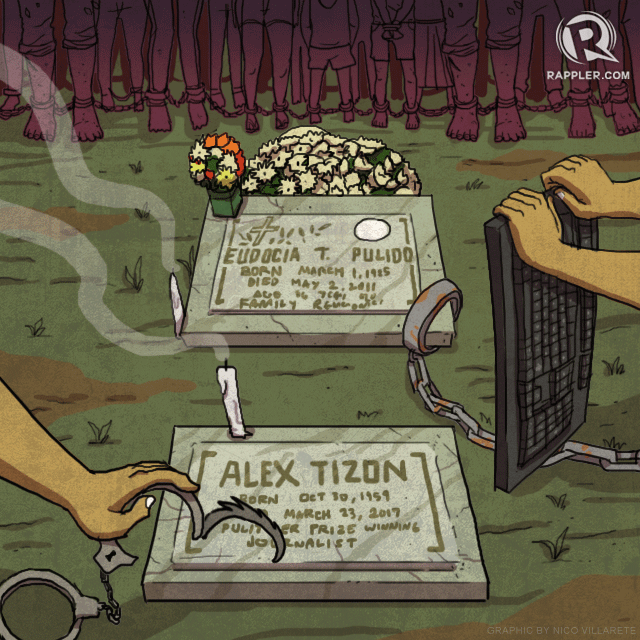SUMMARY
This is AI generated summarization, which may have errors. For context, always refer to the full article.

“Yaya, Yaya!” It’s a name every middle to upper class Filipino kid knows from the gut and can be as evocative and visceral as “Mama.” We love our mothers but our yaya belong to our heart of hearts, something we don’t dare to bring out on Mother’s Day lest we offend our real moms or appear uncool to our friends. And of course no one mentions their yaya on their Facebook posts.
Isang linggo matapos ang komersyalismo ng Mother’s Day sa Pinas, tumambad sa atin ang kwento ni Alex Tizon. Walang ‘sing tapang niyang hinubaran ang krimen ng kanyang mga magulang: Ang pang-aalipin sa isang probinsyanang nais tumakas sa maagang pag-aasawa. Tinawag niya ito sa pinakaparak na ngalan: Pang-aalipin. Wala siyang pinatawad sa kanyang salaysay, ang lolo at mga magulang na pinagsimulan ng pang-aalipin at human trafficking. Ang nakapanlulumong pagtrato kay Lola na ‘di sumusweldo, ‘di pinauwi ng Pilipinas kahit namatayan ng magulang, walang tulugan, pata ang katawan sa maghapong trabaho, maya’t-mayang nasisigawan at napagbubuhatan pa ng kamay. Silang magkakapatid na bagama’t panaka-nakang nagtatanggol sa kanilang Lola ay kasabwat din sa pagtatago ng lihim.
Some say Tizon’s piece is an eloquent attempt to assuage guilt. Others put things in a socio-cultural perspective. Other comments are pure rabble-rousing, out for blood and holier-than-thou. Yet others turn inward and ask the hard questions.
Naglalagablab ang poot natin kapag nakaririnig tayo ng kwento ng pang-aabuso sa mga Pinay na domestic worker sa ibang bansa. Para sa atin sila’y OFW. Pero ‘di sumagi sa ating isipan na kaliga sila ni Inday na ngayo’y nagpaplantsa ng ating jeans.
We’ve set up so many rationalizations for our modern Asian lives and our modern day aliping sagigilid that we’re numb to the fact that like Alex Tizon, we benefit from this system. Would Alex have gone to a prestigious school had Lola not freed up his mom to work as a medical professional to support her kids’ yuppy ambitions? Would we have finished college in Ateneo, La Salle or UP if Mama had quit her corporate or teaching job to do the laundry, clean house and cook dinner?
Madaling makahanap ng palusot kung ikaw ay nakapag-aral: kasalanan ‘yan ng pagkabansot ng ekonomya sa kanayunan at malawakang kahirapan. Ito ba ang tinatawag na “damaged culture” ng mga anthropologist? ‘Di ba’t matagal nang nabura ang pyudalismo?
The story of Les Miserables’ Fantine is so western, so romanticized that she will never translate in our heads to that bubbly chimay next door and certainly not to our own ‘kasama’. Yet around the world, oppression of women and children, human trafficking and slavery exist in various forms – from flesh trades to overworking and underpaying menial employees and house servants. It’s a form of slavery not only when a Middle Eastern madame shoves a hot iron into the face of an undocumented worker or a sex-starved Arab master asks the un-escorted (therefore disgraced) chambermaid for a massage. It’s also slavery when employers hold on to passports, and when they send the help over to the mother-in-law’s house to clean and then on to sister’s house to do the laundry. It’s abuse when masters deprive you of a day off and time to worship your God and yes, even to flirt. But the kasambahay-master dynamic is so ingrained in our culture that getting a maid for less than minimum wage never strikes us as taking advantage of the desperate and underprivileged.
In the end, “My Family’s Slave” honors the memory of Eudocia Pulido and Alex Tizon because it drags the ugly monster out of the closet and out into the light of day. And we’re all complicit in keeping that monster hidden. Our middle class lifestyles soared on the back of a servile system that takes advantage of the poverty pool. It’s a system that keeps a certain segment of society – the penniless, uneducated, docile women – indentured for a fraction, if not most of their lives.
Sinimulan daw ni Alex Tizon ang isang delubyo sa internet sa kanyang kwento ng pang-aalipin. Hindi lang ‘yon, binuksan din niya ang isang bintana sa ating mga kaluluwa.
For journalists, this is a first-class lesson from Tizon, who died two months before the publication of his piece: to be vulnerable and be a truth-teller to the end. For advocates, activists and policymakers, this is a call to re-examine the compartmentalized boxes of our lives built to protect class privileges and rationalized by academic bullshit. And for all of us who’s ever been touched by the devotion of a yaya, a driver or a Lola – to re-examine who we really are as human beings. – Rappler.com
Add a comment
How does this make you feel?
There are no comments yet. Add your comment to start the conversation.